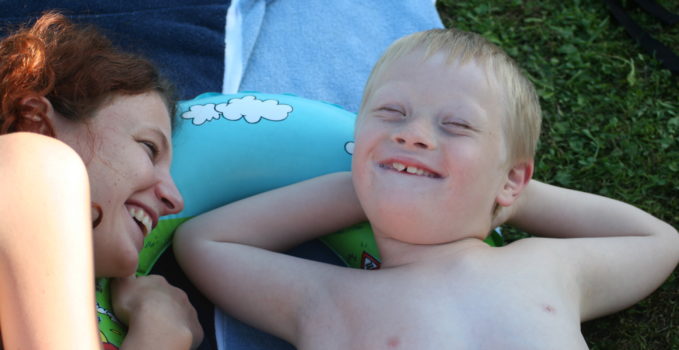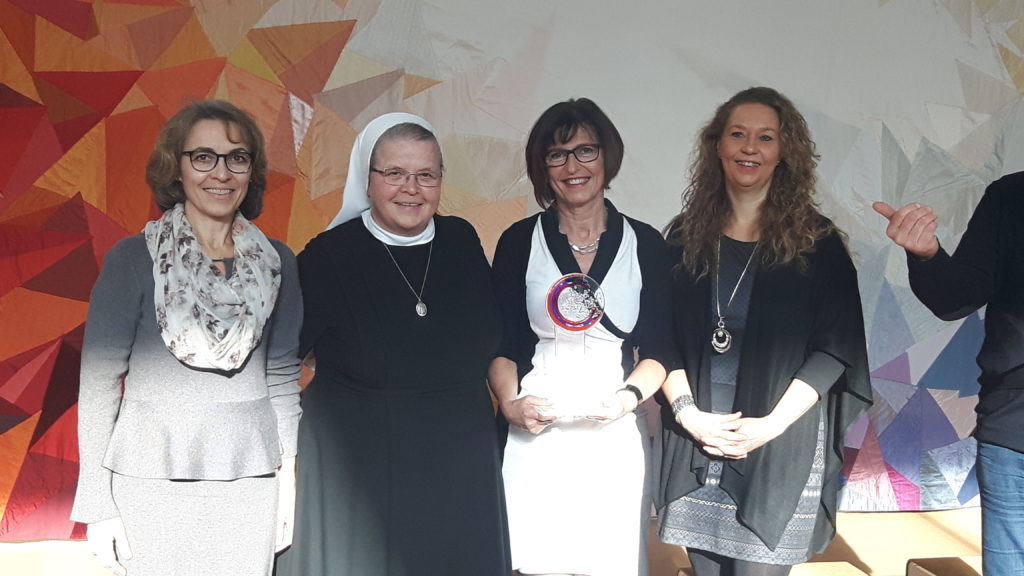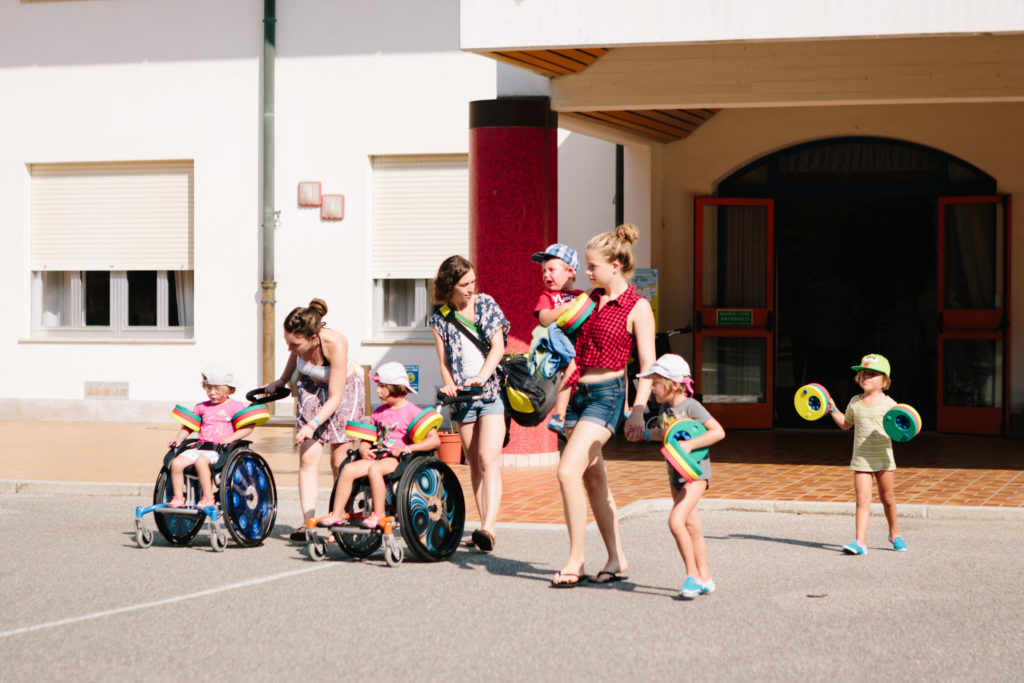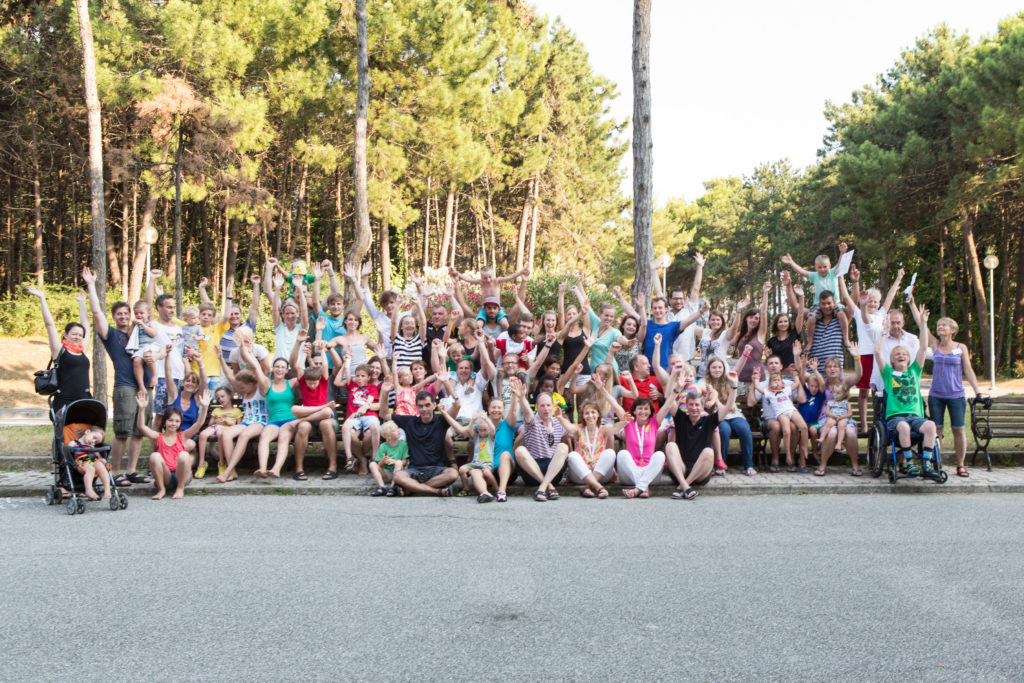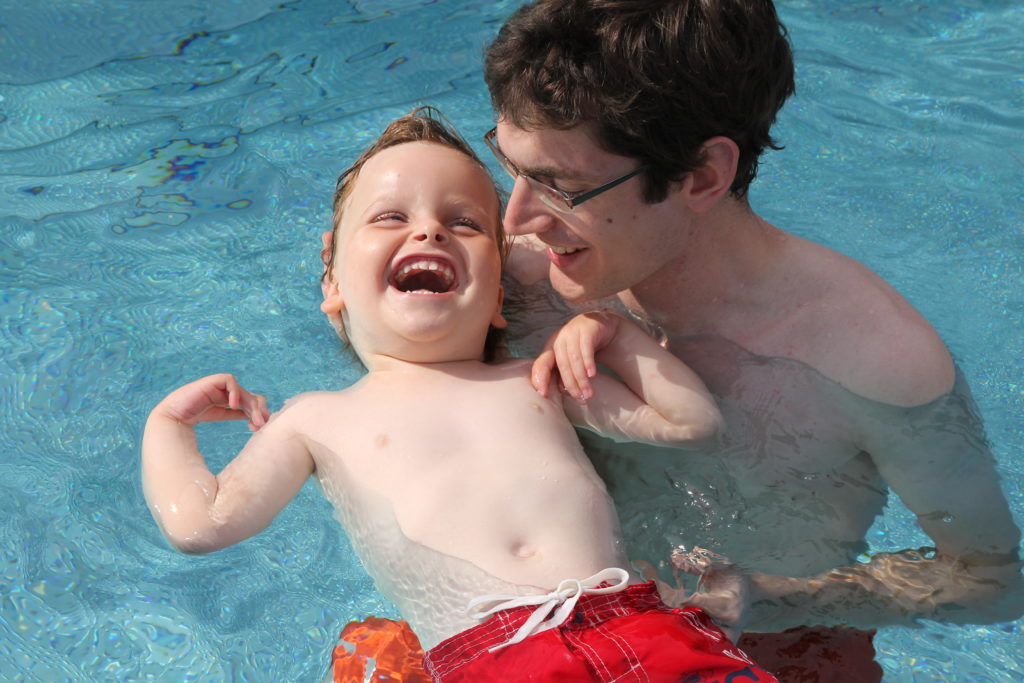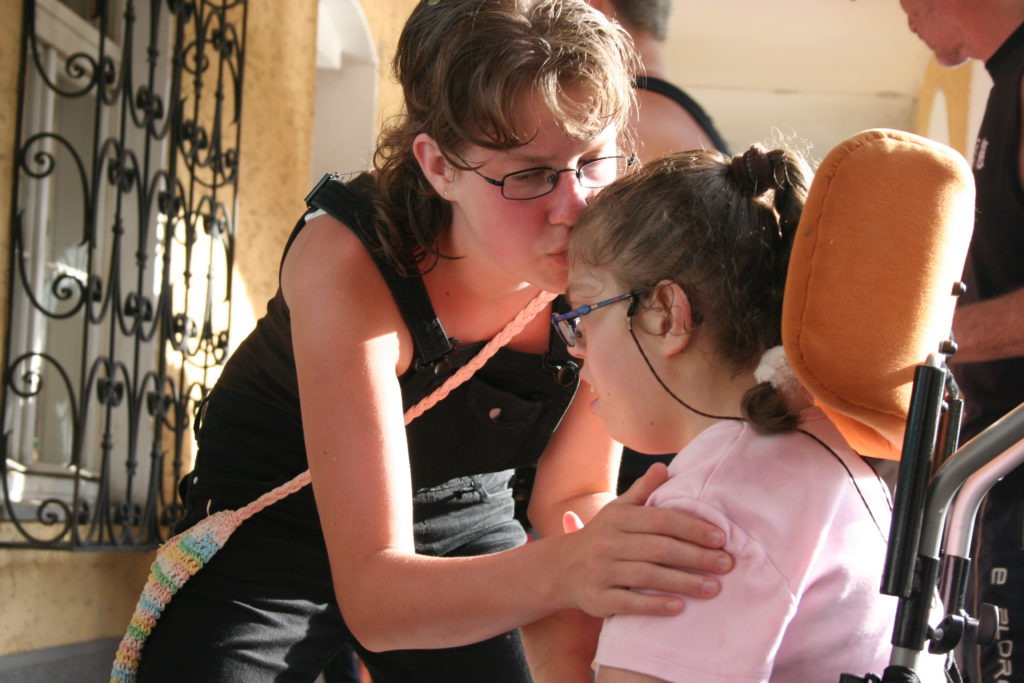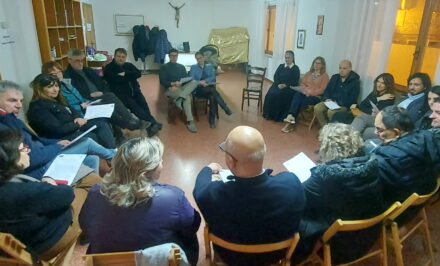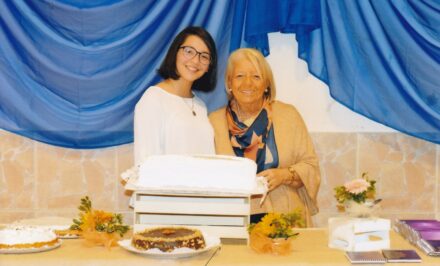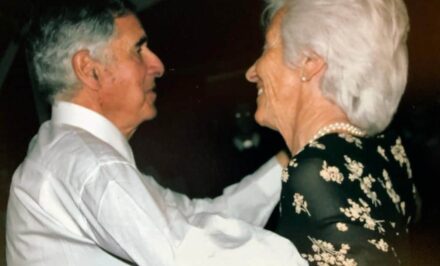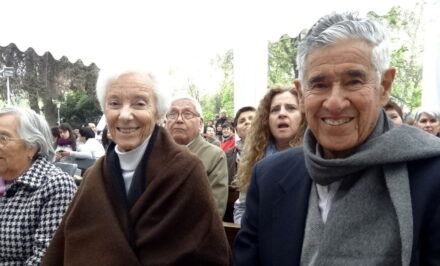Interview with Manuela Baumgartner, winner of the “2016 Prize of Austria’s Religious Communities” award. She is paediatric consultant for children and adolescents, and member of the international leadership of the Schoenstatt Family Federation •
It almost got lost in the Christmas rush, yet this news is really Christmassy. For the third time the Austrian communities for men and women religious have awarded the “Prize of Austria’s Religious Communities” for “achievements at the interface between religious communities and society”. During the Day for religious communities in the Cardinal Koenig House in Vienna, Abbot Christian Haidinger, President of the Conference for Religious Orders for Men, and Sr Beatrix Mayrhofer, President of the Association of Religious Orders for Women, honoured five projects with two main prizes and three prizes of appreciation. The award includes prize money of 10,000 Euros, and has been advertised every two years since 2012. Among the winners was a paediatric consultant for children and adolescents, head of a nuero-paediatric outpatients department, and a Schoenstatter. She was given the 2016 prize in the category for individuals.
The project Manuela Baumgartner started from the Hospital of the Sisters of Mercy in Linz twenty-two years ago is called “Give happiness”, and is designed to support and accompany families with special needs children. Each year she offers a week in which parents and their children are given space in a relaxed atmosphere to communicate and enjoy some days of carefree relaxation. A team of doctors, a psychologist and caregivers for the children, are at the service of the families around the clock. Each year committed teenagers and young adults work as carers for the children and provide leisure activities.
The project is supported exclusively by volunteers and financed through donations. Sr Cordula Greinecker of the Sisters of Mercy in Linz praised Manuela Baumgartner as the initiator, and as the “tireless ambassador for families”. Dr Baumgartner carries out in very practical ways the commission of religious communities to confront the needs of the times.
What motivated Manuela Baumgartner to start such a project and keep it going for twenty-two years? Specifically: What motivates a doctor to make it possible year after year for thirty or more families with special needs children to spend a holiday week at Lingano, Italy, and since 2014 also in Muenster? In all this, what is the role of the faith in the life of Manuela Baumgartner, and what has Schoenstatt to do with it?
“Nevertheless so much is different – better than before”
“Of course, everyday life has already taken over, yet so much is different, better than before. We are still drawing on the lovely experiences we had in Muenster. Also on the knowledge we were given. Unfortunately everything doesn’t work out properly in everyday life and its daily grind, but things are improving constantly in the time we parents spend together, and which we have struggled to uphold.
We were completely convinced by the whole idea. The combination of time as a the family, as husband and wife, and also the group meeting. In the morning the “thought for the day”, and at night the conversation about it. Now we have to continue coping with life, keeping hold of as many good memories as possible for as long as possible, and we hope to be there again next year.”
That could be a contribution to a new feedback or an echo from a Schoenstatt Family Congress. However it is a contribution from “Give happiness” (http://www.glueck-schenken.at/) and from a couple that had taken part in a week for parents with special needs children. “What we are doing is actually not a really new project”, Manuela Baumgartner said. A week for families. It is only that there is nothing available for this particular group, that is, families with special needs children. So in this sense it is new. But it is not something we invented. “It is actually nothing else than a Schoenstatt week such as we conduct for ‘normal’ families.” However, it is simply for families who face a special challenge because a child has special needs.
And that is what it is:
“Our son is now 15 and the two weeks we attended since our child came into the world are the two most valuable weeks.”
That needs to be repeated: The two most valuable weeks in fifteen years.
What matters is the disabled child and all his or her personal relationships.
“Children with impaired development are usually well cared for in a therapeutical and medical sense. However, not so much attention is given to the parents and siblings. Yet they are the most important significant others for that child”, Manuela Baumgartner said. “As parents you aren’t expecting to have a disabled child. It is a surprise and you have to take leave of many of your expectations. It isn’t an easy process and affects every level of relationship in the family, including the extended family. It is already a huge physical challenge,” she explained. “Physically disabled children become heavy, feeding can take up to an hour-and-a-half each mealtime. Multiply that by four and it can take up six hours every day. …. It is also a serious psychological burden: actually caring for the child. On top of that comes the question: What will happen when I am no longer there? And what about the siblings, the circle of friends, and life at work? It is simply a huge challenge.” What matters is the disabled child and all of his or her personal relationships. It also affects the family of that child.
After one of these weeks with Dr Manuela Baumgartner and her team, a couple said, “It does us so much good to speak to people, to laugh, to share with others who are in the same boat. They understand you; they understand how the way some people look at you can hurt, although they often probably don’t mean it badly. But the looks that say ‘I feel sorry for them, thank God it didn’t happen to us!’ simply hurts. And the knowledge is painful – we are different – but a friend in the group said so tellingly, ‘We are the rock stars for our children – we are different!’ And this is just how we have to see our families. We are the elite! We stand by our children and love them from the depths of our hearts just as they are.
In the past I saw it as a big handicap that people could see that our son has a genetic defect – Down Syndrome – but since that week I have changed my mind. Then others know that our child is different and they expect him to react differently from a ‘normal’ child.”
I am supporting and supporting … and who supports me?
A special challenge, Manuela Baumgartner pointed out, is the pre-natal diagnosis that makes life difficult for the parents. “It is incredibly difficult to come to a decision. There is no easy way round it. If we accept the child, the question will one day arise: Why did I do this to myself? If we reject the child, we will have to live with this burden for the rest of our lives; we have to bear it and it is extremely difficult.”
So it does parents good to be with others who are in a similar situation, and to receive inspirations and practical support, as well as time for each other. “And if a priest is there, it is something very special”, Manuela said. “And for Rafael Troxler, who is a student of the Schoenstatt Fathers, it was also a very special experience”, she added.
“I am happy that I took part in the week, happy to have spent this time only with my wife, happy to have looked at circumstances from a different perspective, happy to have spoken with others on the same wavelength …” a testimony similar to very many.
Or, “This week did us as parents a huge amount of good. We were able for the first time in ages to simply ride on bikes or go for a swim. Simply to enjoy the time together. Also the inspirations in the talks, and sharing with others in the same situation, have helped us a great deal in everyday life. I now find it easier to accept our son’s disability.”
Rafael Troxler helping a disabled child to swim
Why don’t you take photos of the disabled children?
Manuela Baumgartner is surprised that in the German clinics almost nothing is done for the parents, but “for the weeks in Muenster there were very few applicants, while in Austria we are almost overrun. The week in August is almost fully booked already, we could have three weeks. But here in Germany perhaps no one talks about how much good it does.”
When we had already ended our interview we looked at the photos, and a little story followed. Manuela Baumgartner remarked almost by the way, “Someone asked me while we looked at the photos: Why don’t you photograph the disabled children? I replied: Those are the disabled children.” She explained, “I never take photos in which we can see disable children in situations that could frighten anyone. I don’t want to show that. I take photos of smiling, happy, laughing children. Suddenly people no longer look at them as disabled children, but simply as children. They simply see happy children. The difficulty is that I can never decide about the photos, because behind each photo there is a story.”
The story of a child with special needs laughing at the camera. The story of a carer who during a week in Lignano found his mission in life. The story of a young sibling who blossoms. The story of parents who have finally found time for each other …
“Now a week has already passed since we returned from the family week in Lignano. We are happy and grateful that we were able to go along”, someone wrote.
“We thank you and your team with all our hearts for your selfless commitment. My husband and I were most impressed by the all-round competence and the appreciative and humble attitude with which you encountered us all. For me, humility includes the courage to serve. I experienced it as placing yourselves at our service in order to help all the families involved to breathe freely again and to find new strength. The week was very important for our relationship, because we have hardly any time for each other in everyday life. So we again came close to each other.”
And they found a child … (cf. Lk 2,15)
Contact, information, testimonies (German):
http://www.glueck-schenken.at/
Original: German. Translation: Mary Cole, Manchester, England


